10/11/2023
With immediate effect Naim Audio have lowered the prices on their Muso and Uniti ranges.
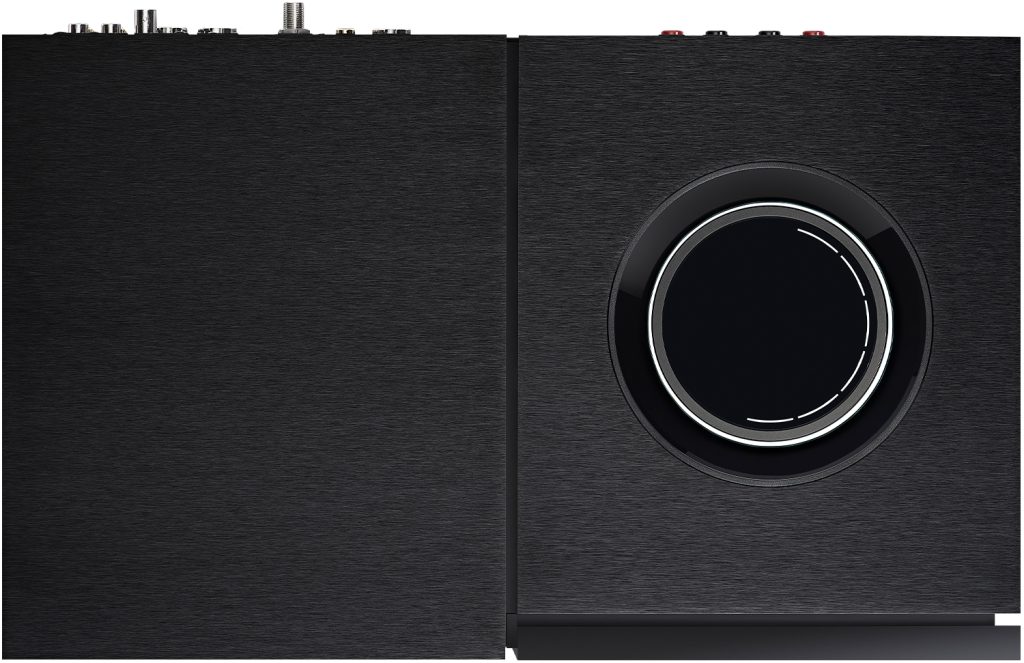
Atom £2299
Star £3499
Nova £4399

Muso QB2 £699
Muso 2 £899
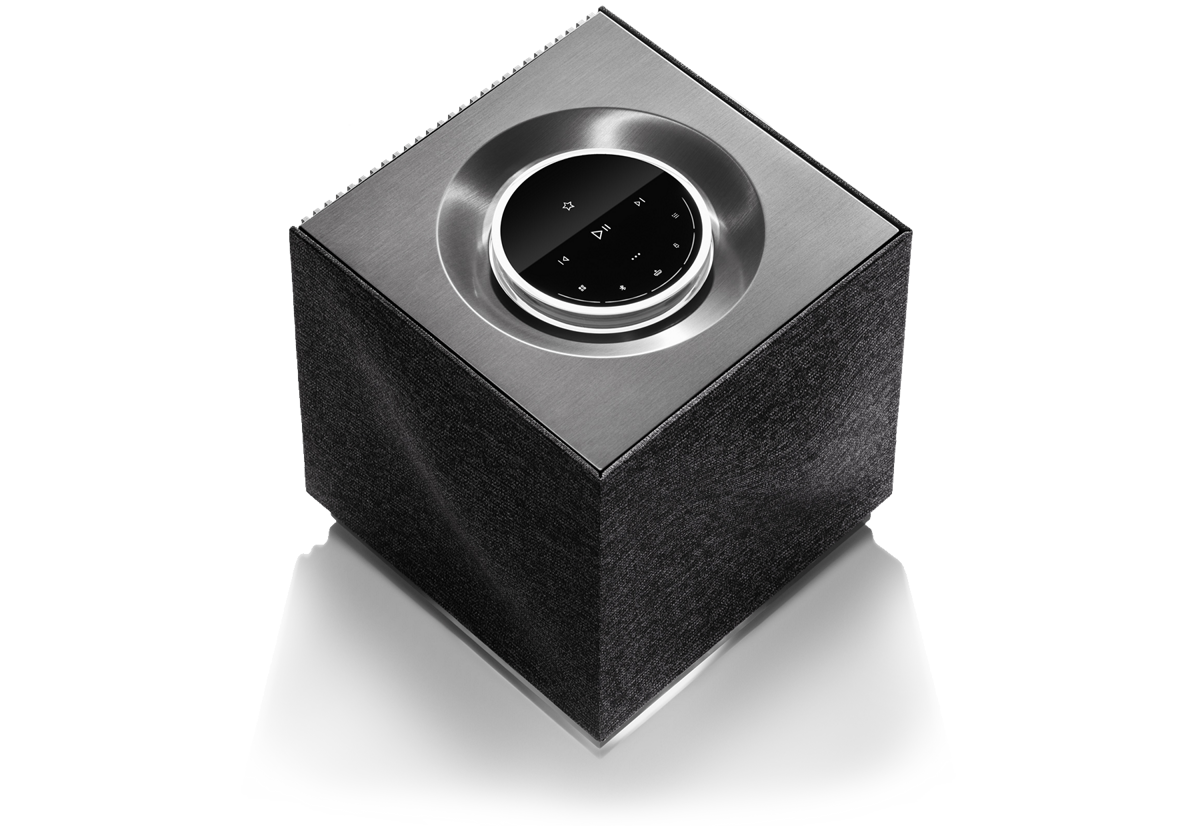
10/11/2023
With immediate effect Naim Audio have lowered the prices on their Muso and Uniti ranges.

Atom £2299
Star £3499
Nova £4399

Muso QB2 £699
Muso 2 £899
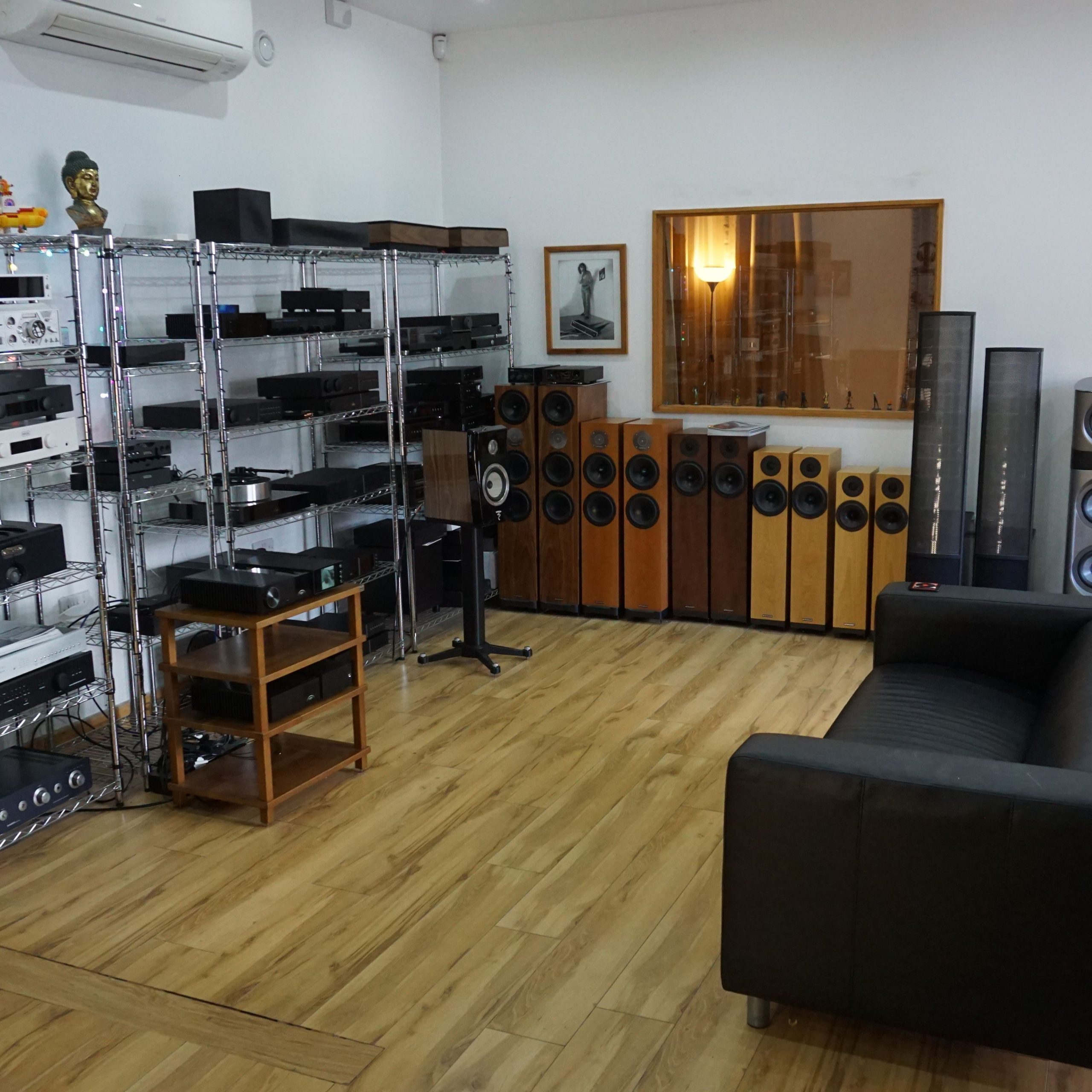
Does anyone remember the Not the 9 O'clock News sketch about hi fi shops? If not you can see it here;
https://www.youtube.com/watch?v=DvswW6M7bMo&ab_channel=soundhog09
In it a customer walks into a hi-fi store and gets met with an "hilarious" pair of salesman who are the wrong type of expert. They talk in highly technical terms and they intimidate the customer at every opportunity; either subtly or not so subtly.
We often meet new customers and we can tell that they come in quite wary of us. Perhaps they've had bad experiences of other shops or even see the sketch above. In any event we do our best to reassure people and also we're at great pains to not discuss things in technospeak or technobabble. Of course hi-fi equipment can seem complex but in reality it is simply a better way to enjoy music at home. And music is a passion we share with all our customers. For this reason we try to play music at every opportunity and also to show rather than to explain. I'm glad to say this approach works.
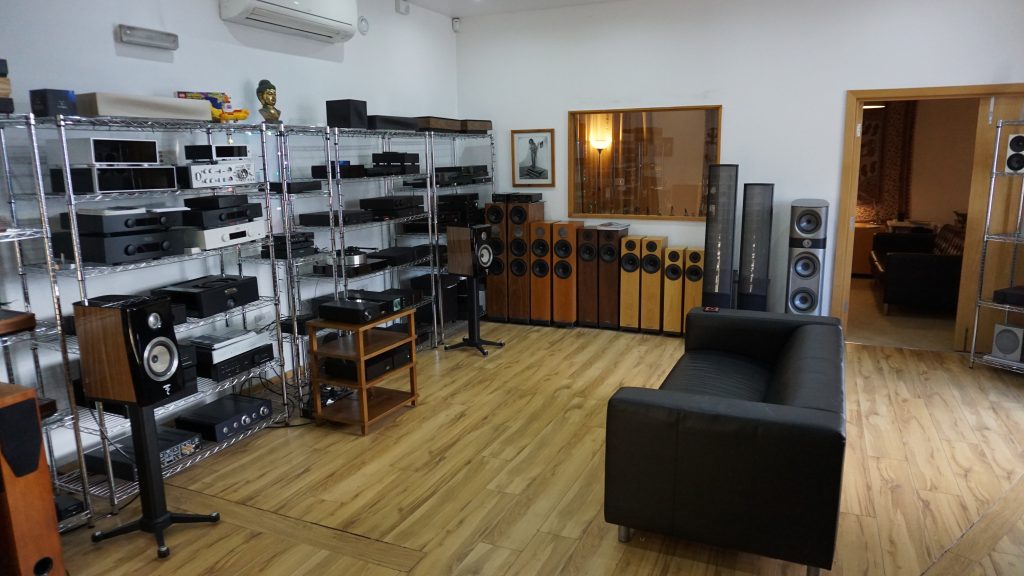
Our store is light and open and you can see many of the products we stock. You can browse uninterrupted or engage with us and when you're ready. We're always happy to see our customers and we don't require you to make an appointment unless you're wanting to listen to something very specific and you require one of our demo rooms to do that. Even then if you pop in and we've time we're happy to set it up for you on speck if the rooms are not in use.
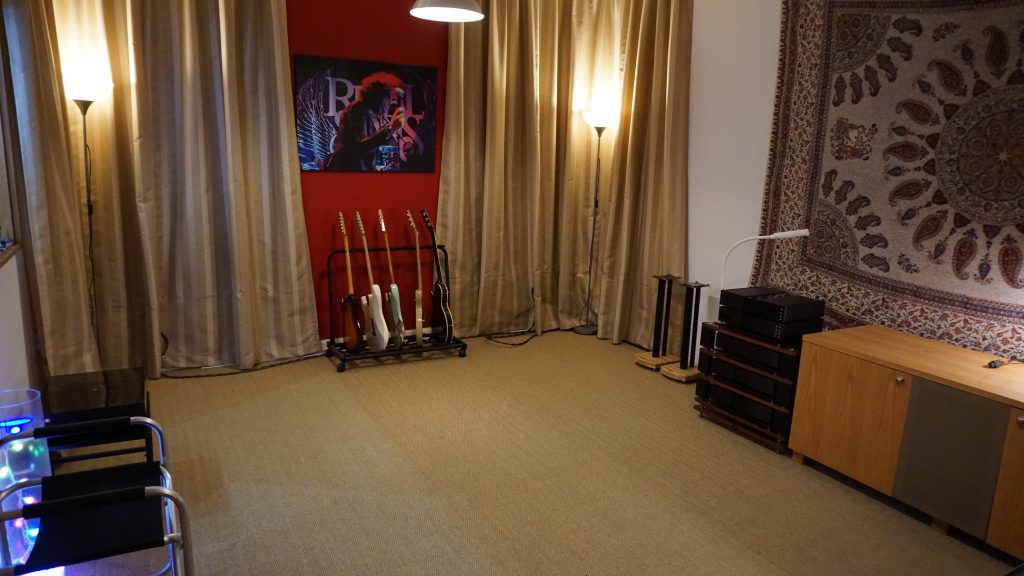
In fact our smaller room always has a music system ready to play vinyl or to stream. In this room we have something affordable set up to give people an insight and a listen to something that sounds fantastic but that won't break the bank. Something like the Rega System One for example. This is ready to go and can always be played easily. You can sit and listen to how good a British Hi-Fi system can sound. One that costs less than a lot of mobile phones and will last twenty years plus.
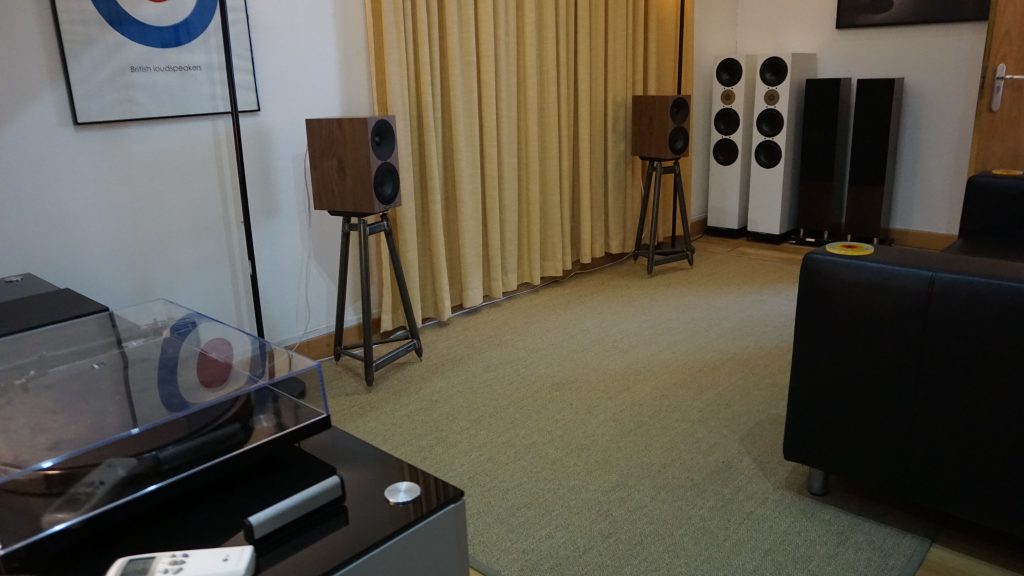
This is our 41st year and we've survived umpteeen recessions, two lockdowns and numerous idiot governments (and local councils) by doing everything we can to look after our customers. We've learned that doing so makes them happy to return and to recommend us to their friends. To quote CJ we "didn't get where we are today" buy not looking after customers.
Money is tight these days but music is something that feeds our minds and our emotions. For some people it is part of their emotional well-being. Myself and my staff all feel the same. Music keeps us sane when the World around us is going crazy.
If you love music and haven't visited our store then we'd love you to do so. We'll make you welcome. We'll listen to you and discover how we can help you get your first proper music system or to best improve the one you have. We won't ram any particular brand down your throat but we will certainly aim to find the very best product for you.
Online is an important part of the World today and its how we communicate with many of our customers either for the first time or on an ongoing basis. However as a bricks and mortar retailer we love seeing our customers face to face best of all. If you're able to visit us we'll take the time to make you glad you did.
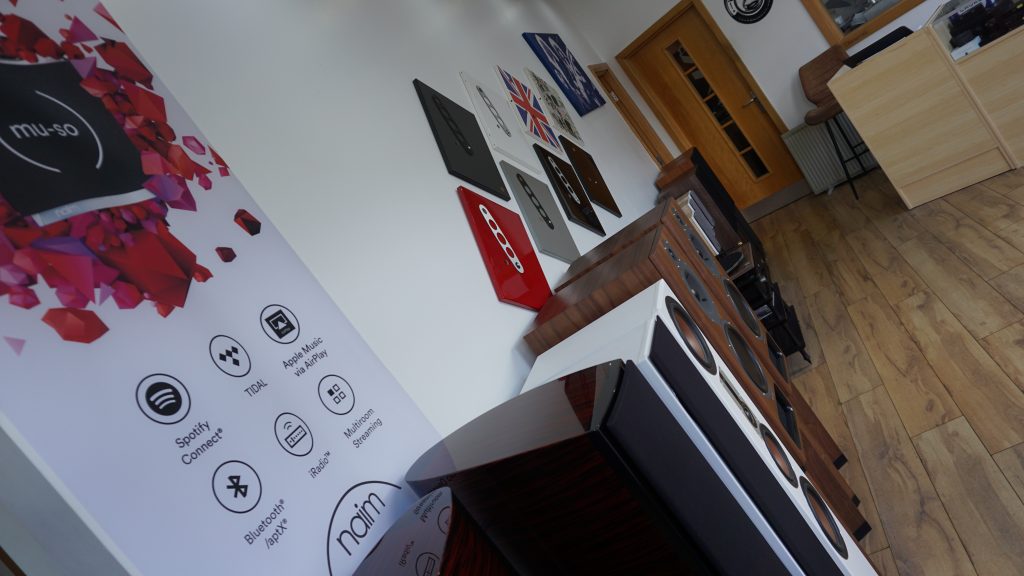
We're not a big company. We're not global and nor are we owned by a conglomerate or a chain. We're a family-run business still owned and run by the family that started the business 41 years ago and who still work in the store. I'm the one sat in the showroom behind the computer screen, ready to step out and welcome you. We really do believe in old fashioned service.
Rest assured that although we know our stuff, we will not thrust it down your throat. Our knowledge helps you make the best choices and we do that by inviting you to listen to music. Music you know and perhaps we can introduce you to some you don't but may grow to love. Music is our language and our god.
And finally; we love music so much that we built a record store in our basement!
Looking forward to meeting you.
Paul Hobson
© 2022 Moorgate Acoustics Store. All Rights Reserved.